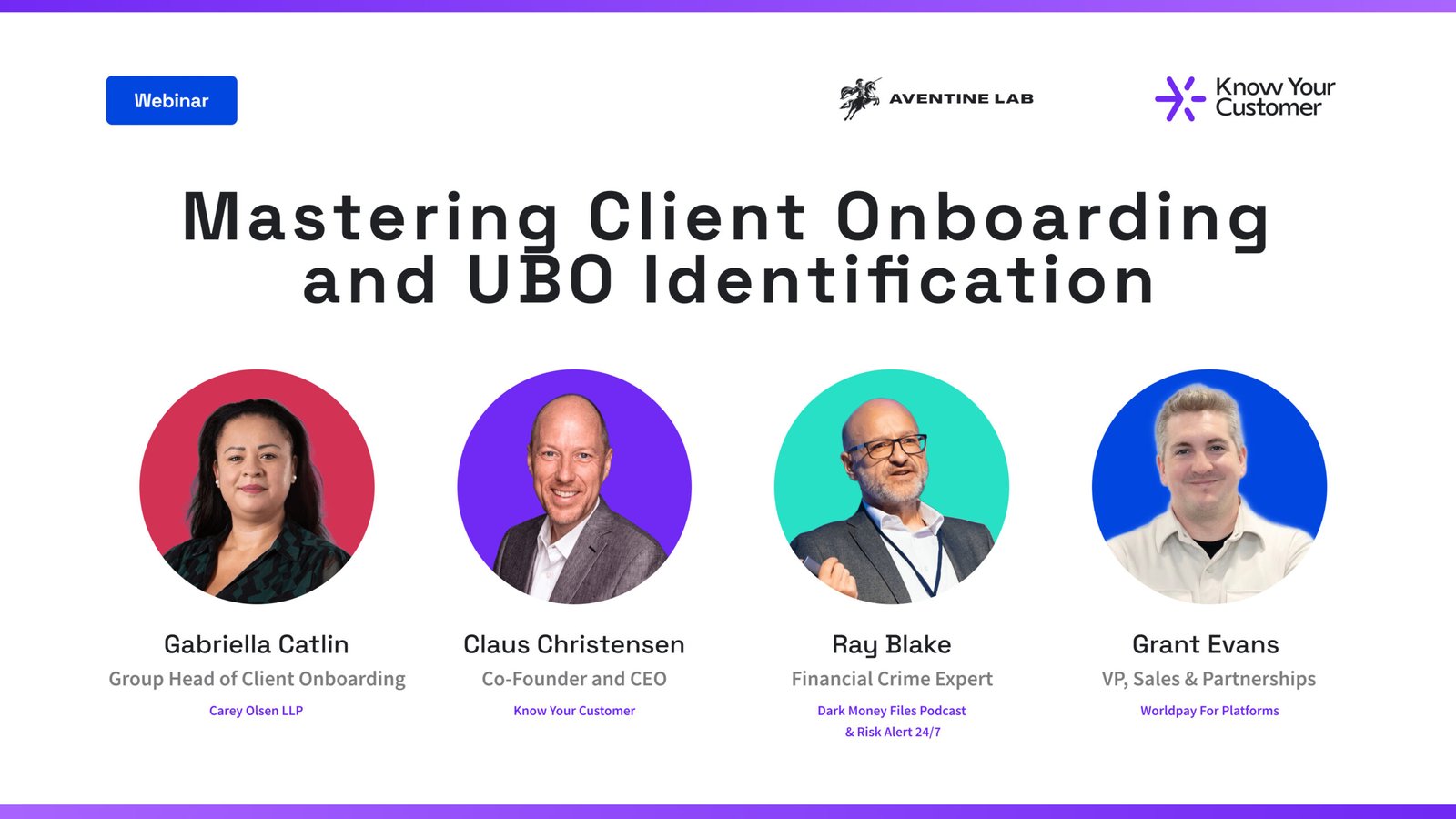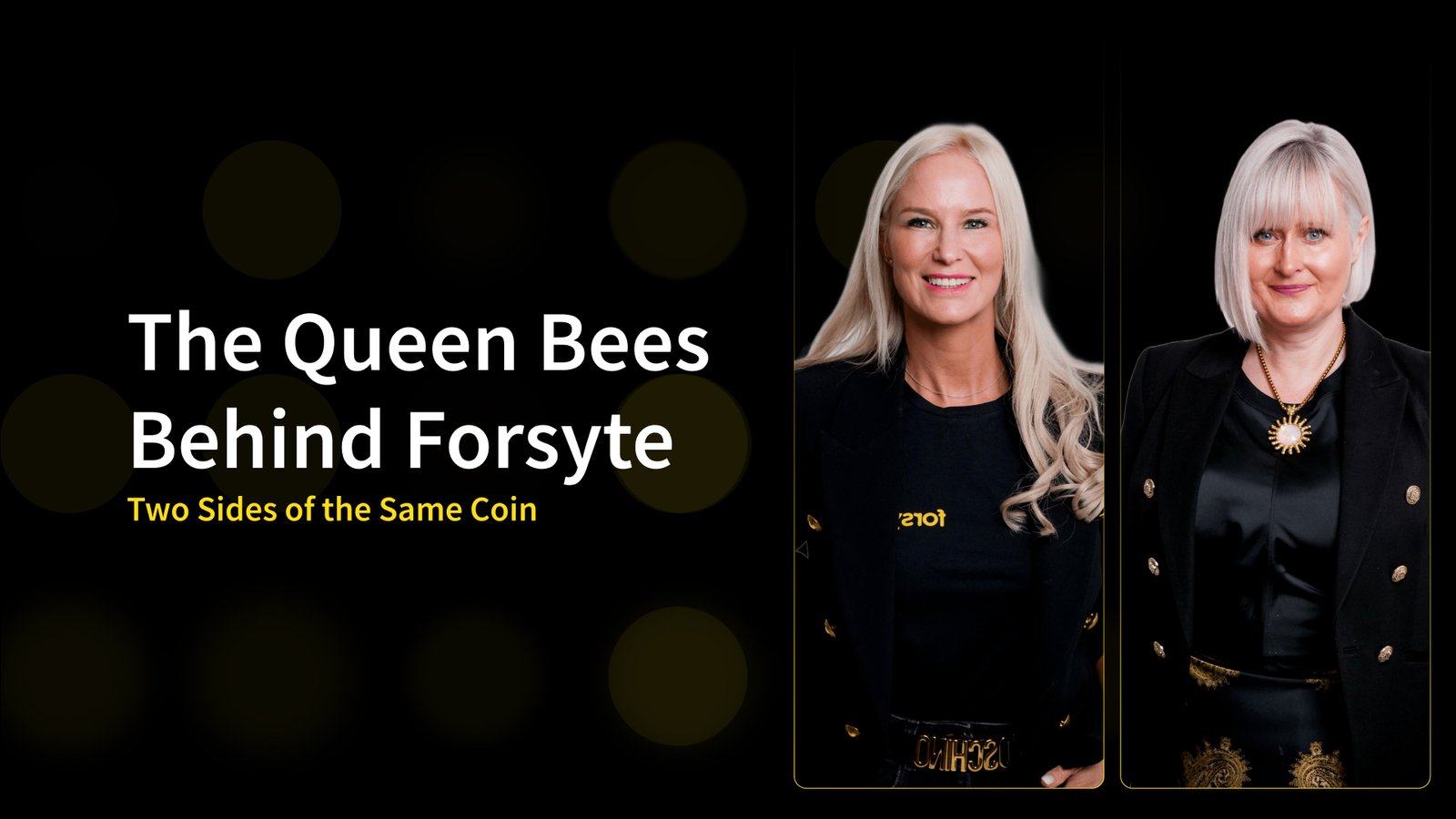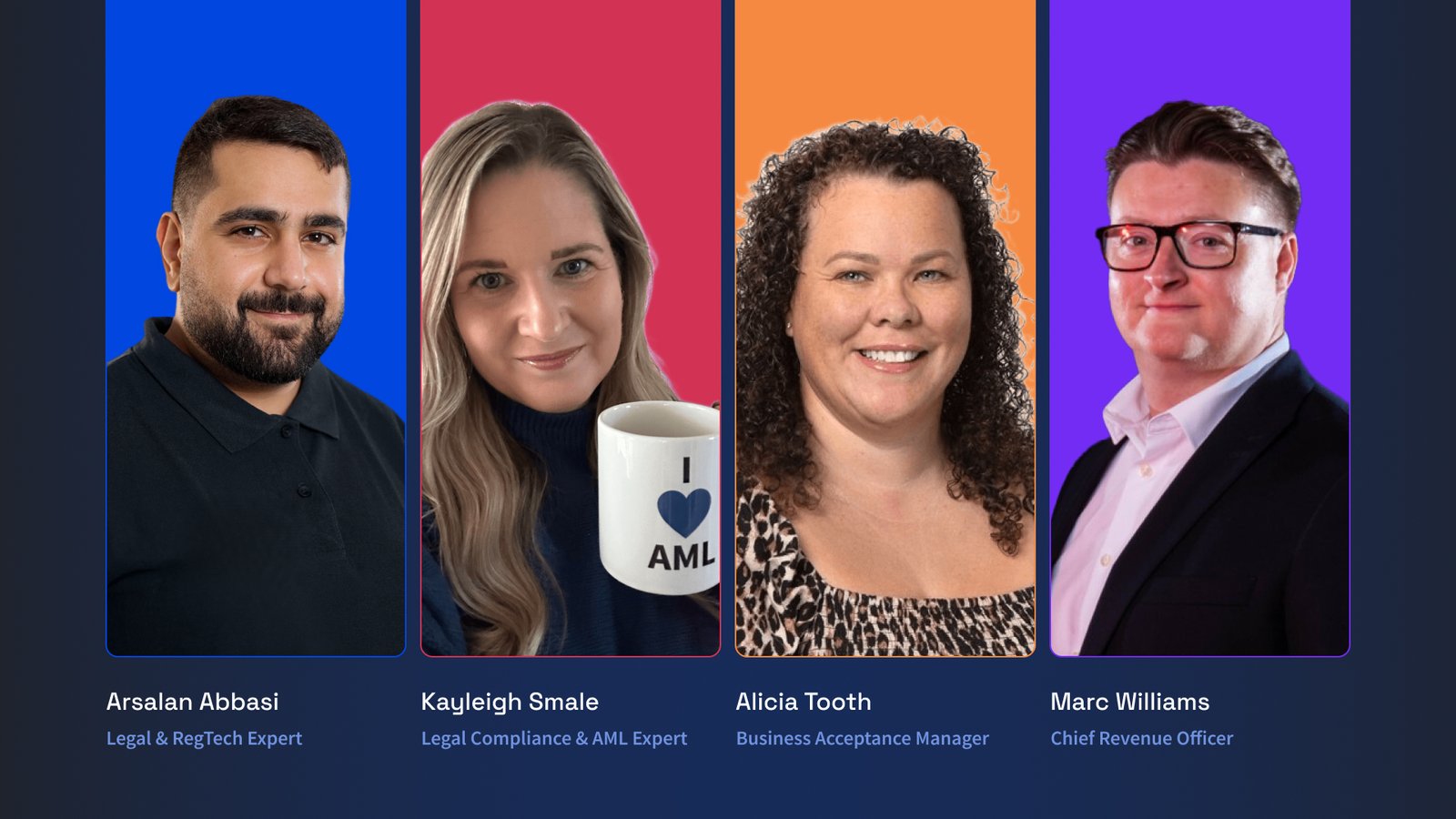RegTech Roundtable Introduction
On 17 April 2025, more than 20 RegTech leaders, founders, and commercial heads joined a discussion roundtable focused on one thing: what actually works when it comes to going to market.
Hosted by Arsalan Abbasi from Aventine Lab, RegTech Roundtable pulled back the curtain on sales, partnerships, marketing, and growth strategies from across the RegTech landscape. There was no posturing, just real talk, shared pain points, and hard-won lessons from those building and scaling companies across Europe, APAC, and beyond.
Each participant gave a concise overview of their company and their current role. While some focused on data, others on orchestration, onboarding, transaction monitoring or compliance policy creation, one common thread tied them together: solving complex regulatory problems with elegant, scalable solutions.
RegTech Roundtable Participants: A Global Perspective
The roundtable featured a dynamic lineup of RegTech leaders and a compliance consultant, each contributing unique insights:
Jonnie Davis, Zenoo:
A modular, orchestration platform built for digital trust.
“We help API-first vendors orchestrate compliance around the globe. Think of it as Lego for RegTech. You build what you need with no code.”
Joanna Wands, AsiaVerify
A KYB and data provider specialising in Asia-Pacific.
“China data is our sweet spot. We translate and surface information that’s hard to get, across firewalls, in local languages, and with the right authorisations.”
Nikolas Chatziavraam, Zygos
A practice management platform designed for lawyers, accountants, and corporate service providers.
“We’re like Monday.com for offshore legal services. Strong on entity management and AML compliance, especially in jurisdictions like Cyprus, Malta, and Panama.”
Christian Focacci, Threat.Digital
A bootstrapped AI-powered due diligence engine.
“We’re doing what we did ten years ago, but now with LLMs. It’s all about pulling risk-relevant information from unstructured data, summarised and scored in real time.”
Megan Brackley, Xapien
AI-based due diligence reports with a legal and corporate focus.
“We combine structured data with reputational analysis and deliver it in minutes. Our edge is context, not just what’s there, but what it means.”
Nicholas Ahrens & Charlie Westerman, Personr
An end-to-end AML platform based in Australia.
“We started after Charlie had his ID stolen. We now cover onboarding, policy creation, screening, and reporting, especially for SMBs and fintechs.”
Joseph Ibitola, Flagright
Transaction monitoring and post-onboarding AML compliance.
“We’re 100% post-KYC. Risk scoring, monitoring, screening. Now at 50+ customers across six continents. Focused, fast-moving, and partner-friendly.”
Kris Petrov, Amiqus
Compliance and onboarding platform for the legal and recruitment sectors.
“We’re the go-to AML solution for Scottish law firms, and now working across the UK public sector, including NHS and AMS.”
Matthew Agius, Diligex (KYCMatic)
Runs a Malta-based regtech and advisory firm:
“We started off as an advisory company, and today we’re also in the RegTech space.”
Crafting a Go-to-Market Strategy: Partnerships at the Core
Arsalan Abbasi kicked off the discussion with a compelling metaphor, comparing GTM strategy to a military campaign.
“If I’m a general trying to conquer the United Kingdom, how would I do it? You need partners on the ground to tell you where’s the safe spot to land”
His approach centres on building a network of 50 to 100 partners, compliance consultants, influencers, API providers, and marketing allies who already command trust with target audiences. By co-creating content and campaigns with these partners, RegTechs can engage prospects authentically, bypassing the low success rates of cold outreach.
Arsalan shared a lesson from past failures:
“We were creating content in silo,beautiful carousels, a lot of effort, but no one cared. Two, three likes.”
Instead, he advocated for collaborative campaigns that involve target clients, such as law firms, as co-authors.
Building Trust Through Partnerships
Trust emerged as a recurring theme, with participants offering tailored approaches based on their markets.
Christian Focacci of Threat Digital shared his experience:
“We hired someone who knew all the chief compliance officers at large US banks. Within one year, he walked us into every meeting, generating $2 million in revenue.”
This insider access was critical for overcoming the trust barrier with large financial institutions.
Nikolas Chatziavraam of Zygos highlighted the importance of locality in multi-jurisdictional markets:
“Lawyers in Mauritius are different from lawyers in Malta. Partnering with local resellers,big IT integrators or smaller firms with connections,has helped us build trust.”
Kris Petrov of Amiqus pointed to organic referrals as a trust-building engine:
“Our clients are engaged with our client success team and willingly spread the word through their networks, whether within their organisations or to friends.”
Joanna Wands of AsiaVerify cautioned against over-investing in misaligned partnerships:
“Some partners take up a lot of time without giving much back. Be picky and choosy,engage when there’s a deal in front of it.”
Jonnie Davis of Zenoo echoed this, warning that channel partnerships are “not for the faint-hearted.” He stressed the need for clear engagement structures:
“You need a proper plan, executive alignment, and agreement on what you’re going to do. Otherwise, it’s just a referral agreement signed at a conference.”
Joseph Ibitola of Flagright described an evolutionary GTM journey:
“We started with startups, where we got traction with transaction monitoring. As we moved to mid-market, we realised we needed partnerships with KYC providers to meet broader needs.”
This iterative approach, driven by customer feedback, allowed Flagright to expand without overextending into crowded markets like onboarding.
Marketing: From Noise to Value
Marketing was a focal point, with participants debating its role in lead generation versus brand building. Arsalan posed a provocative question:
“Is marketing just buzz, or is it producing results?”
The consensus leaned toward value-driven, targeted marketing,particularly thought leadership,as the most effective approach, though measuring ROI remains a challenge.
Thought Leadership and Content
Joanna Wands shared AsiaVerify’s marketing-heavy strategy, driven by the need to establish expertise in Asian data:
“We implemented HubSpot about a year and a half ago, creating cadences to promote ebooks, white papers, and webinars. It’s about driving people to resources that showcase our expertise.”
Christian Focacci described a long-term “flywheel” effect from content marketing:
“You put out content, say the right things, and over time, it pays off. Clients have told us, ‘We know you because we read your blog articles for years.'”
He admitted that while it’s difficult to quantify the short-term ROI, the long-term trust it builds is undeniable.
Kris Petrov of Amiqus shared how content supports credibility in legal and public sectors:
“Solicitors and lawyers are factual people, they don’t bite on fluff. Thought leadership, like webinars and white papers, gives value and gets shared. But often, just being listed on the right public registries drives more traffic than any ad campaign.”
Joseph Ibitola of Flagright took a no-nonsense view:
“We stopped doing webinars, they didn’t convert. What works is being where the professionals are. We focus on real-world events and making it easy for our clients to share what’s working.”
Arsalan Abbasi returned to the original point about content overload:
“We all made the same mistake,posting beautiful graphics that got two likes. Unless it’s content your target audience is searching for or something they can share to look smart, it won’t land. I stopped outsourcing my thinking. The content that works for us is direct, no fluff, answering questions and providing real value. If it looks like it was written by ChatGPT, it’s getting ignored.”
The Advertising Question: Visibility vs. Substance
The conversation turned to advertising,Google Ads, LinkedIn, paid search,with mixed opinions.
Joseph Ibitola admitted ads weren’t a natural fit:
“I hate ads. But we had to start running them when competitors began targeting our name. Now they bring in maybe 20 to 30 percent of our inbound, mostly for visibility.”
He pointed out buyer behaviour:
“The smart buyer skips the ads anyway and clicks the organic link. But if you’re not visible, you’re not even in the race.”
Christian Focacci offered a counterpoint:
“Most users don’t know the difference between an ad and an organic result. Being in the top spot matters,even if it hurts your soul.”
Kris Petrov was less convinced:
“We’ve tested ads, but they often feel like a money drain. You’re spending to chase leads you could get organically. We’re focusing more on targeted content and partnerships.”
Joanna Wands saw ads playing a role in her upcoming product-led growth model:
“We haven’t turned them on yet, but once the self-service model launches, we’ll use ads to drive that traffic,especially to high-intent landing pages.”
Nicholas Ahrens of Personr flagged the cost of SEO competition in Australia:
“We’re competing against law firms, consultants, and big tech. When there’s a new AML regulation, everyone’s bidding on those keywords. And now, people are starting to ask their LLMs instead of Googling.”
That shift in search habits sparked debate about the future of discoverability.
Operational Tools: Streamlining Success
The roundtable explored the tools powering regtech operations, with a focus on simplicity and collaboration. Participants shared their favourite solutions:
- Arsalan Abbasi: “I can’t live without my AI note-taking tool. It helps me manage my goldfish memory and self-correct my communication habits.”
- Jonnie Davis: Praised LinkedIn for visibility and People.ai for transforming Salesforce data. “It gives you a 360 view of the account, making Salesforce actually useful.”
- Joseph Ibitola: Relied on Excel. “If Microsoft Excel dies, I’m dead. It’s versatile for demand generation, even if I use HubSpot.”
- Christian Focacci: Used HubSpot for marketing but preferred Excel’s simplicity. “I hate complex tools, but HubSpot makes scaling easier.”
- Joanna Wands: Highlighted Waalaxy, a LinkedIn outreach plugin. “We’re exploring it for qualitative outreach, but I’m keen on trusted influencers like Anna to refine our messaging.”
- Nikolas Chatziavraam: Favoured HubSpot and Atlassian tools (Jira, Confluence). “We’re testing Apollo.io for data enrichment, but it’s not perfect.”
- Kris Petrov: Used Zapier for automation, HubSpot for sequences, and AI tools like ChatGPT and Copy.ai for content. “We trained AI on our tone-of-voice document to ensure consistency.”
- Anna (AML Cube Consulting): Relied on Notion, Canva, and ChatGPT for proofreading. “I’m building Notion, but Canva is essential for graphics.”
- Nicholas Ahrens and Charlie Westerman: Highlighted Vanta for compliance evidence collection, Notion for knowledge repositories, Slack for communication, and Google Workspace. “Vanta automates sensitive data handling, and Notion speeds up onboarding,” Ahrens said.
Challenges and Opportunities in Regtech GTM
The roundtable also surfaced key challenges in RegTech GTM strategies, alongside opportunities for innovation:
Challenges
- Measuring Marketing ROI: Participants struggled to quantify the impact of marketing efforts, particularly thought leadership, which delivers long-term rather than immediate results.
- Balancing Scale and Focus: Small teams must prioritise high-value activities, avoiding time-intensive partnerships or marketing campaigns with low returns.
- Competing with Larger Budgets: Startups face stiff competition from established players with deeper pockets for SEO and advertising.
- Adapting to New Search Trends: The rise of LLM searches requires regtech firms to rethink visibility strategies beyond traditional search engines.
- Overcoming Trust Barriers: Building credibility with risk-averse clients, particularly in legal and financial sectors, demands authenticity and persistence.
Opportunities
- Leveraging Partnerships: Strategic alliances with trusted partners, from local resellers to industry influencers, can amplify reach and credibility.
- Embracing Self-Service Models: Product-led growth, as pursued by AsiaVerify and considered by Xapien, can capture smaller clients efficiently, freeing resources for enterprise sales.
- Harnessing Thought Leadership: White papers, webinars, and case studies build trust and attract educated buyers, particularly in fact-driven sectors like legal.
- Collaborative Ecosystems: API-driven partnerships, as proposed by Diligex, enable regtech firms to specialise and deliver holistic solutions.
- Optimising Tools for Scale: Simple, integrated tools like HubSpot, Notion, and Slack empower lean teams to operate efficiently across global markets.
Looking Ahead: The Future of Regtech GTM
The Aventine Lab roundtable underscored the dynamic nature of regtech, where innovation and collaboration are driving progress. As compliance requirements grow more complex, regtechs must balance trust-building with scalability, leveraging partnerships and thought leadership to stand out in a crowded market.
The participants’ willingness to share insights, from failed experiments to breakthrough successes, highlighted the value of community in tackling shared challenges.
Arsalan’s vision for Aventine Lab as a hub for cross-pollination sets a precedent for the industry. By fostering connections, promoting organic growth, and amplifying collective efforts, the consultancy is helping regtech firms navigate the path to market success.
As the group prepares for future discussions and collaborative projects, such as the Australian AML guide, the regtech sector is poised to deliver innovative, trust-driven solutions that empower businesses worldwide.
Key Takeaways
- Trust is Non-Negotiable: Authentic partnerships, referrals, and thought leadership are critical for engaging compliance professionals.
- Partnerships Amplify Impact: Strategic alliances with local resellers, influencers, and complementary providers enhance credibility and reach.
- Value-Driven Marketing Wins: Thought leadership, such as webinars and white papers, outperforms generic marketing, particularly in fact-driven sectors.
- Organic Growth Outshines Ads: While ads offer visibility, organic strategies,SEO, partner-led promotion, and customer advocacy,deliver higher-quality leads.
- Tools Enable Efficiency: Simple, integrated solutions like HubSpot, Notion, and Vanta streamline operations for lean, global teams.
- Collaboration is Key: API-driven partnerships and shared ecosystems allow regtech firms to specialise and deliver comprehensive solutions.
As Arsalan Abbasi aptly summarised, “Value is what works. Put out authentic content, answer real questions, and be willing to be disliked for speaking the truth.” This philosophy, echoed by the roundtable participants, encapsulates the future of regtech GTM: a blend of trust, collaboration, and relentless focus on solving compliance challenges.



